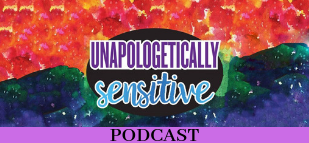Taking up Space and Expressing Your Feelings is Important for Healing Attachment Injuries
Patricia shares her experiences on her recent trip to Chicago. She discusses the challenges she faced in navigating changes in plans and the emotions that arose during her son’s graduation from boot camp. Patricia also explores the importance of creating a secure attachment in her relationship with Jen and the need to ask for what she wants and needs with both Jen and her son. She emphasizes the significance of taking up space, expressing feelings, and finding support in managing attachment injuries.
HIGHLIGHTS
Takeaways
- Navigating changes in plans and unexpected events can be challenging, especially for individuals with attachment injuries.
- Creating a secure attachment in relationships involves open communication, asking for what you want and need, and being aware of your own emotions and triggers.
- Taking up space and expressing your feelings is important for healing attachment injuries and building healthier relationships.
- Finding support from trusted individuals can help regulate emotions and provide a sense of security.
- Managing attachment injuries is an ongoing process that requires self-awareness, self-compassion, and patience.
Sound Bites
“Navigating changes in plans and unexpected events can be challenging”
“Creating a secure attachment in relationships involves open communication”
“Taking up space and expressing your feelings is important for healing attachment injuries”
Chapters please allow for the addition of the introduction
00:00 Introduction and Disappointment
08:27 Emotional Challenges of Departure and Goodbyes
13:46 Creating a Secure Attachment in Relationships
16:19 Taking Up Space and Expressing Feelings
28:00 Managing Attachment Injuries: An Ongoing Process
31:45 Conclusion and Final Thoughts
PODCAST HOST
Patricia was a Licensed Clinical Social Worker for over 17 years, but she is now exclusively providing coaching. She knows what it’s like to feel like an outcast, misfit, and truthteller. Learning about the trait of being a Highly Sensitive Person (HSP), then learning she is AuDHD with a PDA profile and RSD, helped Patricia rewrite her history with a deeper understanding, appreciation, and a sense of self-compassion. She created the podcast Unapologetically Sensitive to help other neurodivergent folks know that they aren’t alone, and that having a brain that is wired differently comes with amazing gifts, and some challenges. Patricia works online globally working individually with people, and she teaches Online Courses for neurodivergent folks that focus on understanding what it means to be a sensitive neurodivergent. Topics covered include: self-care, self-compassion, boundaries, perfectionism, mindfulness, communication, and creating a lifestyle that honors you
LINKS
Neurodivergent Online Course– https://unapologeticallysensitive.com/neurodivergent-online-courses/
Receive the top 10 most downloaded episodes of the podcast– https://www.subscribepage.com/e6z6e6
Sign up for the Newsletter– https://www.subscribepage.com/y0l7d4
To write a review in itunes:
- click on this link https://itunes.apple.com/us/podcast/unapologetically-sensitive/id1440433481?mt=2
- select “listen on Apple Podcasts”
- chose “open in itunes”
- choose “ratings and reviews”
- click to rate the number of starts
- click “write a review”
Website–www.unapologeticallysensitive.com
Facebook– https://www.facebook.com/Unapologetically-Sensitive-2296688923985657/
Closed/Private Facebook group Unapologetically Sensitive– https://www.facebook.com/groups/2099705880047619/
Instagram– https://www.instagram.com/unapologeticallysensitive/
Youtube– https://www.youtube.com/channel/UCOE6fodj7RBdO3Iw0NrAllg/videos?view_as=subscriber
Tik Tok–https://www.tiktok.com/@unapologeticallysensitiv
e-mail– unapologeticallysensitive@gmail.com
Show hashtag–#unapologeticallysensitive
Music– Gravel Dance by Andy Robinson www.andyrobinson.com

